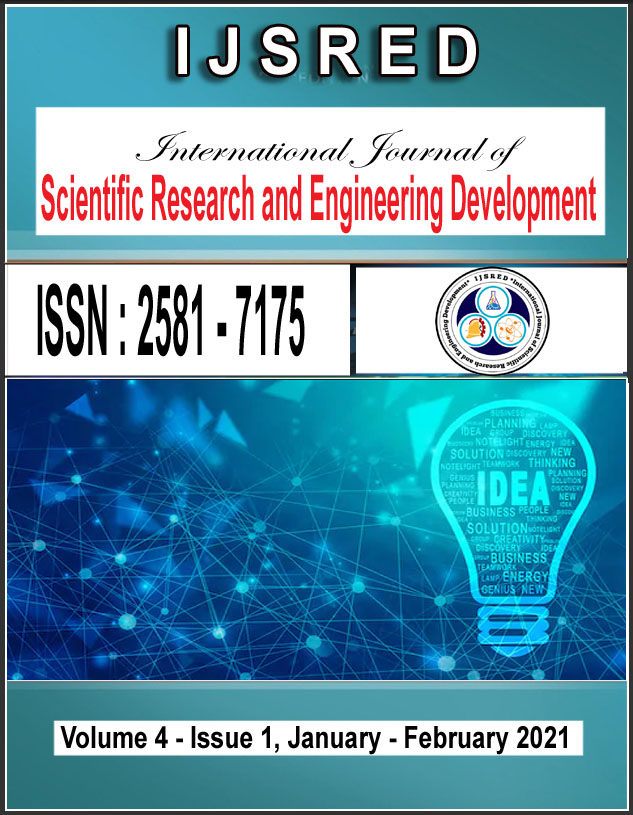 |
International Journal of Scientific Research and Engineering Development( International Peer Reviewed Open Access Journal ) ISSN [ Online ] : 2581 - 7175 |

Deficiency of Serum Zinc in Children With Down Syndrome
 |
International Journal of Scientific Research and Engineering Development (IJSRED) | |
| Published Issue : Volume-4 Issue-1 | ||
| Year of Publication : 2021 | ||
| Unique Identification Number : IJSRED-V4I1P114 | ||
| Authors : Natália Tonon Domingues, Laura Rossi Lazarin, Amanda Daniel, Lídia Raquel de Carvalho, Valéria Cristina Sandrim, Cátia Regina Branco da Fonseca | ||
Abstract :
Down Syndrome (DS) is the most common chromosomal condition in Brazil, and represents the genetics anomaly with the highest prevalence in pediatrics. Higher incidence of several clinical complications and higher prevalence of mineral and vitamin deficiencies have been observed in children with DS. One of them, zinc is an essential micronutrient for human nutrition and health.However, little is known about the magnitude of this deficiency in children with DS in Brazil. The objective of this study was to evaluate nutritional level of zinc considering zinc serum levels and dietary intake of this micronutrient in children and adolescents with DS. Method: A cross-sectional clinical study was conducted, approved by the Research Ethics Committee. All children who underwent follow up at the Genetics Child Care outpatient ward of the University Hospital were eligible. Data were collected in 2017 and 2018. Dietary recall was taken and blood collection was performed for lab evaluation of serum zinc level of all participants. Values of serum zinc lower than 65 μg/dL were considered as deficiency. Results: A total of 37 children with DS were included. The analysis of serum zinc levels showed deficiency in 94.3% of the children, the mean zinc serum level was 50.40 μg/dL, median was 49.24 μg/dL (sd =10.1μg/dL). Only 5.4% of children presented deficiency in dietary intake of zinc. We concluded that incidence of inadequate zinc nutritional status in children with DS was high.
